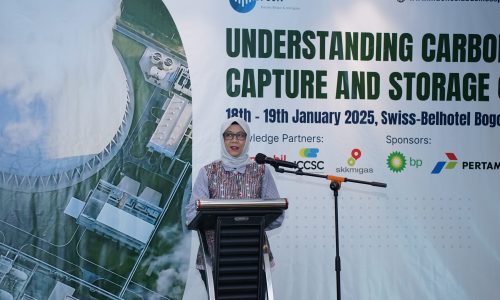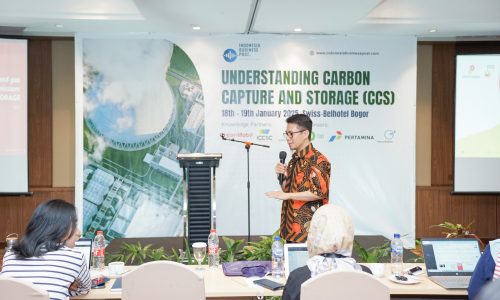As the names of Prabowo Subianto, Ganjar Pranowo and Anies Baswedan have been favorites to run as presidential candidates in the 2024 General Elections, their vice presidential candidates should have a strong background in macroeconomy.
“Anies has his bachelor degree in accounting, micro-economy. Prabowo has military background and a chairman of a political party and currently serves as a defense minister. Ganjar was a seasoned politician and now a governor of Central Java,” political analyst from the Pelita Harapan University, Emrus Sihombing, told Indonesia Business Post on December 19, 2022. “The three presidential candidates should be accompanied by their vice presidential candidates with a strong background in macroeconomy.”
The Asian Development Bank said in its December 2022 outlook for 2023 that there were three factors that might continue to hamper recovery in Asia: The recurrent lockdowns in China, the Russian invasion of Ukraine, and the slowing global growth. The ADB forecasts that growth for Asia is revised down from 4.3% to 4.2% in 2022 and from 4.9% to 4.6% in 2023.
Potential candidates
Sihombing pointed out Coordinating Minister for the Economy Airlangga Hartarto, Finance Minister Sri Mulyani Indrawati and State-Owned Enterprise Minister Erick Thohir as potential candidates to run as vice presidential options.
He revealed that Airlangga, who is also Golkar Party chairman, has mastered in macroeconomy. During the COVID-19 pandemic, Airlangga coordinated all resources in economy-related ministries so Indonesia could survive and its economy could bounce back. Meanwhile Sri Mulyani, a former World Bank Managing Director and has served as finance minister for four terms, has contributed to Indonesia’s economy stability and growth. As for Erick, a businessman and the 2018 Asian Games organizing committee executive chairman, also has a deep knowledge and experience in economy policies.
“Those three figures are the best candidates for vice president,” he added.
Read also: Nasdem Party’s second option: Supporting Anies Baswedan as vice presidential candidate
Sihombing particularly mentioned that Democratic Party Chairman Agus Harimurti Yudhoyono (AHY) – who has been tipped as one of the vice presidential candidate favorites – would not fit the criteria as he might not contribute much to the management of the state.
“The criteria for the next vice president should be someone with a macroeconomy background and AHY is not in the position to be paired with anyone,” he said. Prior to lead his party, AHY, son of former president Susilo Bambang Yudhoyono (SBY), served in the military and a former army major.
Why macroeconomic background matters?
Sihombing revealed the reason why vice presidential candidates with macroeconomy background would be important for the 2024 elections. When people talked about a country’s development, economy would be the main variable, he said. For example, a region with high economic status will have lower criminal rate. “It is a sociological axiom,” he added.
From the legal perspective, a prosperity in a society will reduce the violation rate. For example, in Singapore, the people have higher obedience to traffic regulation than the poor countries. “It means that the high economic prosperity will better other sectors,” he added.
Read also: What if Prabowo passes the baton to Sandiaga for 2024 presidential election?
In addition, all aspect of life needs economy, especially education and health sectors. To achieve good education system, the government or private education institutions must provide proper payment to teachers. In return, the teachers will be motivated to raise their capacity and transfer their knowledge to their students.
No strong candidates yet
Sihombing explained that so far there has been no leading vice presidential candidates in terms of popularity. “There is no leading vice presidential candidates because each pollster has its own score
for respective vice presidential candidate,” he said.
Since Indonesian politic has been known of oddity and unpredictability, a candidate with high electability will not automatically win an election. “For example, when [President Joko “Jokowi” Widodo] Jokowi and Ganjar first ran for governor office, their electability were considered low compared to their rivals,” he said.
Read also: Jokowi’s ‘white hair, facial wrinkles’ statement may boost Ganjar Pranowo’s electability
Sihombing said there were many variables that influence the behaviors of Indonesian voters, including the political party machines and the use of non-verbal symbols. “The delivering of messages and non-verbal symbols is a strong variable that influence voting behavior. So far, there is no vice presidential candidates with absolute high electability,” he added.
Unclear political formation
Luluk Harijanto, a former chairman of Jokowi’s supporting group Cakra-19, said there has been no certainty for presidential and vice presidential candidates yet. Political parties, who declared their supports for certain candidates, has not yet met the required conditions by the election law. Based on the law, a presidential and a vice presidential candidates should be supported by a political party or a coalition of political parties with at least 115 seats at the House of Representative (DPR), or 20% of the total parliamentary seats.
“It is regulated in article 222 of Law No. 7/ 2017 on Elections,” he said, referring to the presidential threshold.
The current results of local pollsters cannot become a reference for analysts. Harijanto said some pollsters were not independent and could be paid to influence the voting behavior of the people.
“We can see the formation clearly when the General Elections Commission (KPU) officially announce the candidates,” he added.









